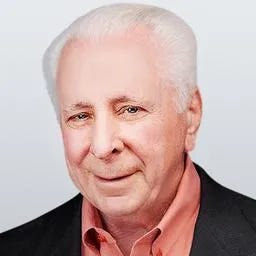The Paradox - If the elite really cared about humanity, they wouldn't ban fossil fuels to destroy our way of life. Poorer nations need the same products enjoyed in wealthy countries
Almost half the world — over three billion people — live on less than $2.50 a day and billions living with little to no access to electricity, like those living in places like Africa, Brazil, China,
The Paradox - If the elite really cared about humanity, they wouldn't ban fossil fuels to destroy our way of life.
Poorer nations need the same products enjoyed in wealthy countries that are based on fossil fuels to begin flourishing, concurrent with developed nations that only wish to live only on electricity from renewables!
Published , June 24, 2024 at America Out Loud NEWS
Co-authored: Vijay Jayaraj (from India) joins Ronald Stein discussing how poorer nations need the same products enjoyed in wealthy countries that are based on fossil fuels to begin flourishing, concurrent with developed nations that only wish to live only on electricity from renewables!
Almost half the world — over three billion people — live on less than $2.50 a day and billions living with little to no access to electricity, like those living in places like Africa, Brazil, China, India, Indonesia, and Malaysia, is complicated by the hypocritical “green” agendas of leaders in the few wealthier developed economies that have benefited from the more than 6,000 products made from fossil fuels since the beginning of the industrial era.
Wealthy counties desiring to pursue their net-zero emissions goals, wish to rid themselves of fossil fuel usage, and the products and fuels that made them Developed Nations, while poor countries need those “products” to elevate themselves from their underdeveloped status to become flourishing economies, not just for growth of national GDP but also for the socio-economic improvement of individual families.
The vast difference in the lifestyle of some of these families will make many of us wonder if there we are in a time travel machine. Hospitals without electricity, homes without refrigerators, families without a car or a motorbike, and millions with uncertainty about next morsel of food on their plates!
The future prosperity for these people, and about 80 percent of humanity, is contingent on their economic advancement through the rightful access to harness the foundational elements of any flourishing economy, i.e., the strategic use of fossil fuels to enjoy the products and fuels that are the basis of all the infrastructures such as:
Transportation
Water filtration
Sanitation
Hospitals
Medical equipment
Appliances
Electronics
Telecommunications
Communications systems
Heating and ventilating
Wealthy countries wishing to rid the world of crude oil, coal, and natural gas, without replacements in mind, would be immoral and evil, as extreme shortages of the petroleum products manufactured from fossil fuels will result in billions of fatalities from diseases, malnutrition, and weather-related deaths in both the developed and the under-developed economies.
Shortages of fossil fuel products would necessitate the lifestyles of those in the wealthier countries being mandated back to the horse and buggy days of the pre fossil fuel 1800’s and could be the greatest threat to most of the planet's eight billion residents.
The few wealthy countries pursuing the generation of electricity from wind turbines and solar panels while simultaneously moving to rid the world of fossil fuels have short memories of petrochemical products and human ingenuity being the reasons for the world populating from 1 to 8 billion in less than two hundred years.
The world’s population explosion was not just based on the discovery of oil alone. We have learned that crude oil is useless unless it can be manufactured into something usable. The 8 billion now on this planet are dependent on the oil derivatives and fuels that are manufactured from crude oil.
Today, through human ingenuity, we have more than 6,000 products currently benefiting society and transportation fuels for the 50,000 jets moving people and products, and the transportation fuels for more than 50,000 merchant ships for global trade flows, and the fuels for the militaries and space programs, as well as the fuel for the President’s 400 ton Air Force One airplane.
As the world’s population depletes the earth’s crude oil reserves over the next few centuries or so, the grandchildren in wealthier developed countries will be unable to enjoy the more than 6,000 products of our materialistic society, being enjoyed by the current residents of those developed nations on this planet. Those in poorer nations have yet to enjoy the lifestyles of those fortunate to live in the wealthier nations, all made possible with the products made from fossil fuels.
It cannot be overemphasized that implementing Net Zero emission policies would eliminate products derived from petroleum that are the foundation of today’s lifestyles and economies. Disruption to nitrogen fertilizers and pesticides alone will result in about half the world’s population not having enough food to eat.
Life without oil is NOT AS SIMPLE AS YOU MAY THINK as renewable energy is only intermittent electricity from breezes and sunshine and NEITHER wind turbines, nor solar panels, can manufacture anything for society.
The climate will continue to be a challenge, like it has for billions of years, but now, we have 8 billion on this planet that we didn’t have a few centuries ago, that we need to maintain healthy and productive lives in the decades ahead, currently being enjoyed by the few in the modern world. Depriving developing nations of the products and fuels manufactured from fossil fuels could be a much greater threat to mankind than any climatic challenges facing humanity.
Please share this information with teachers, students, and friends to encourage Energy Literacy conversations at the family dinner table.
Click this Link to Sign up for Energy Literacy from Ronald Stein





Why would they mess with affordable, accessible, trustworthy sources of energy? For a net zero goal?